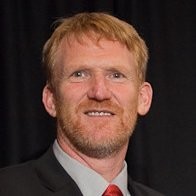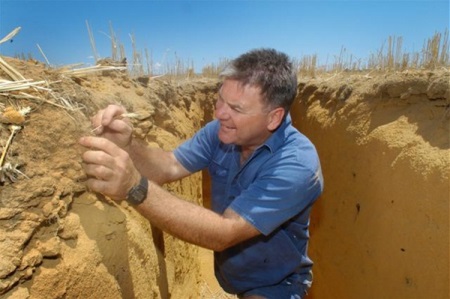| Description |
Soil Biology Masterclass: 8-9 August 2022This is an ideal program for delegates seeking to understand the benefits of soil biology as a driver of healthy crops and healthy foods in sustainable production environments such as: - Proactive and innovative growers across horticultural and agricultural sectors
- Consultants, advisors and agronomists seeking to create new value from cropping operations
Incorporating soil health and biology and management practices to sustainably increase productivity and profitabilityDownload the brochure PDF, 315.47 KB Learn How To Harness The Life In Your Soils For Better Farming OutcomesParticipants at our Soils Masterclasses will learn how to adopt practices and strategies to enhance the life in soils and use the power of plant-soil-microbial relationships to unlock soil nutrients, produce healthier and more nutritious plants and understand how microbes drive modern farming success. This two day program includes: - Full overview of soil health, soil biology and nutrition practices that reflect the latest, emerging research findings
- Conference dinner with delegates
- Conference materials and access to soil health facilities at Western Sydney University's Hawkesbury campus
- Morning teas, lunches and afternoon teas on day one
Course outline:A full two-day program that will expand your understanding of how new research is driving renewed interest in soil health as a function of overall farm productivity: - History of soil biology and agriculture
- Diversity and functions of soil microbes that drive productivity
- Nutrient cycling of nitrogen, carbon and other nutrients
- Plant and microbial interactions
- Soil fauna that influence soil biology and activity
- Integrating soil health methods into practice
Who Should Attend This Course?An ideal program for keen and innovative delegates seeking to understand the benefits of soil biology as a driver of healthy crops and healthy foods in sustainable production environments: - Proactive and innovative growers across horticultural and agricultural sectors
- Consultants, advisors and agronomists seeking to unlock new value from cropping operations
Special Guest PresenterStuart McAlpineStuart McAlpine runs a 5,000 ha farm in Buntine, in the Northern Agricultural Region of Western Australia. The property has a wide mix of soil types with Stuart mainly growing cereal crops, as well as running sheep. Stuart's leading edge farming practices earnt him selection as the Northern Agricultural Region’s 2015 Soil Health Champion. As part of this role, Stuart recently presented at the 2015 Talkin’ Soil Health Conference in Kojonup. What makes him different from many other farmers is his adoption of a biological farming system. In 2007, Stuart began his move from a high input conventional farming system to a more biological approach with much lower inputs.
Your Presenters| | | | |
|---|
| Professor Brajesh Singh (WSU) (opens in a new window)
|
Professor Brajesh Singh is an internationally recognised expert in the field of microbial ecology. His research interests encompass functional microbial ecology, climate change and environmental biotechnology with particular focus on the role of microbes in ecosystem function and environmental sustainability.
|  | | | Dr Eleonora Egidi | Dr Egidi joined HIE in 2018 as a Postdoctoral Research Fellow following an international search for a microbial ecologist to lead a Cooperative Research Centre for Contamination Assessment and Remediation of the Environment (CRC-CARE) funded project "A novel framework to identify, predict and improve efficiency of bioremediation technology". In 2020, Dr Egidi was awarded an ARC DECRA fellowship for the project "Small but bold: harnessing microbes to boost drought tolerance in grasses". The project focusses on identifying the key microbial functions that contribute to grass tolerance to drought. The research involves controlled microcosms and field surveys to identify those microbial taxa that drive drought-survival traits in grasses. This program integrates molecular techniques, soil biochemistry, ecophysiology, and spatial ecology to (i) characterise microbial acquisition patterns by plants with different drought survival traits and (ii) identify microbiome-driven plant traits that provide benefits to grasses under drought. |  | | | Assoc Prof Uffe Nielsen (opens in a new window)
| Assoc Prof Uffe Nielsen is broadly interested in community and ecosystem ecology, and the link between the two, i.e. how do changes in one influence the other. In a time where large-scale changes in land use and climate are impacting ecosystems across the globe it is essential for human well-being to acquire knowledge of the potential implications of these changes. For instance, species gains and losses, and changes in community composition, belowground due to climate changes can impact nutrient cycling, which may lead to changes in aboveground communities and potentially limit productivity of agricultural lands. |  | | | Dr Catriona Macdonald (opens in a new window)
|
Dr Catriona Macdonald investigates the impacts of environmental change on nutrient cycling and resource allocation within terrestrial environments. Her research interests are geared towards understanding how environmental change impacts nutrient cycling and ecosystem functioning and how this affects
productivity and sustainability of soils.
|  | | Dr Kelvin Montagu - Colo Consulting (opens in new window) |
Dr Kelvin Montagu is a widely-recognised professional facilitator in conservation sciences. In addition to facilitating, Kelvin will be describing ways that cover crops can be used to manage soil biology. |  | |
|





